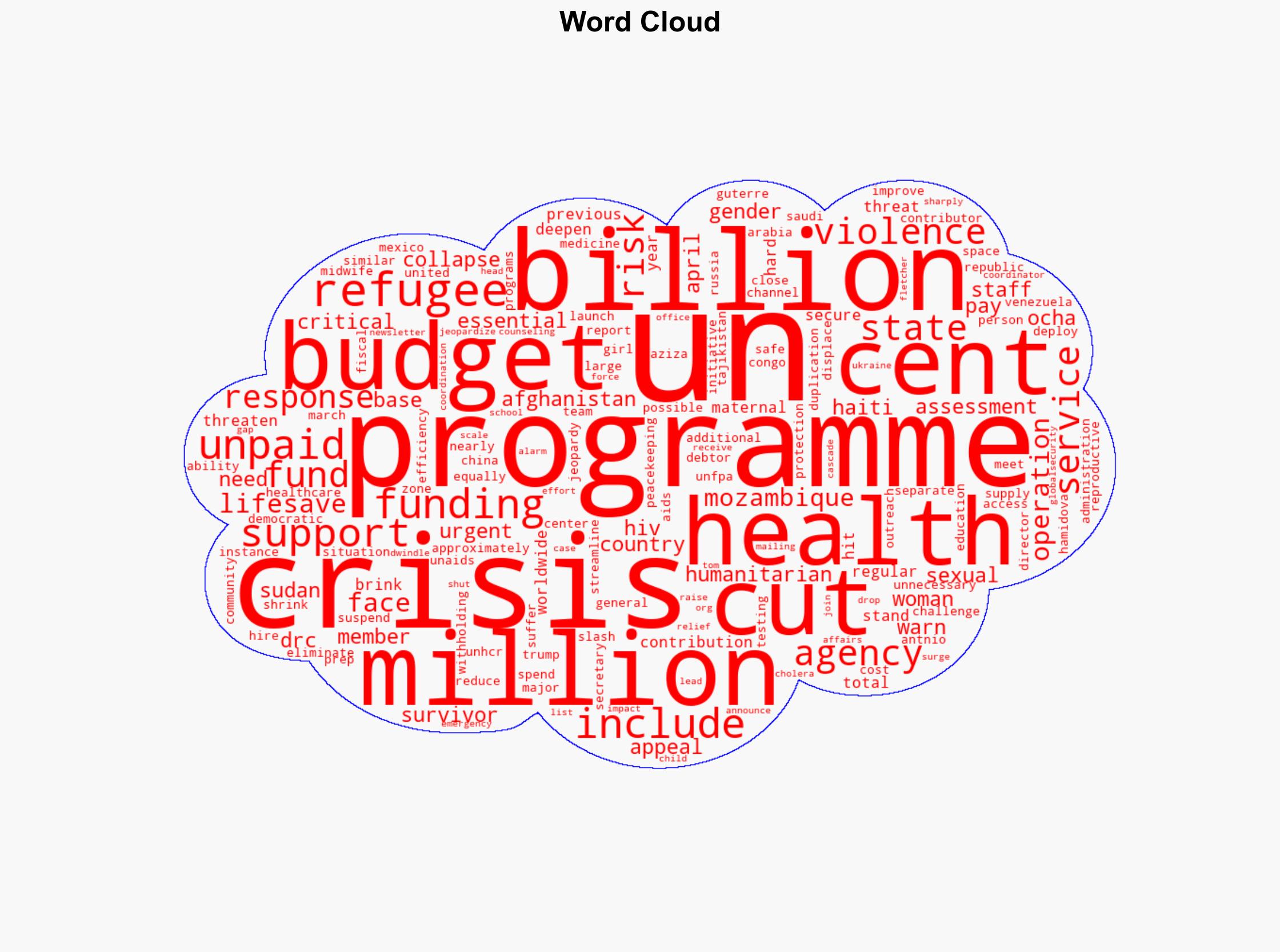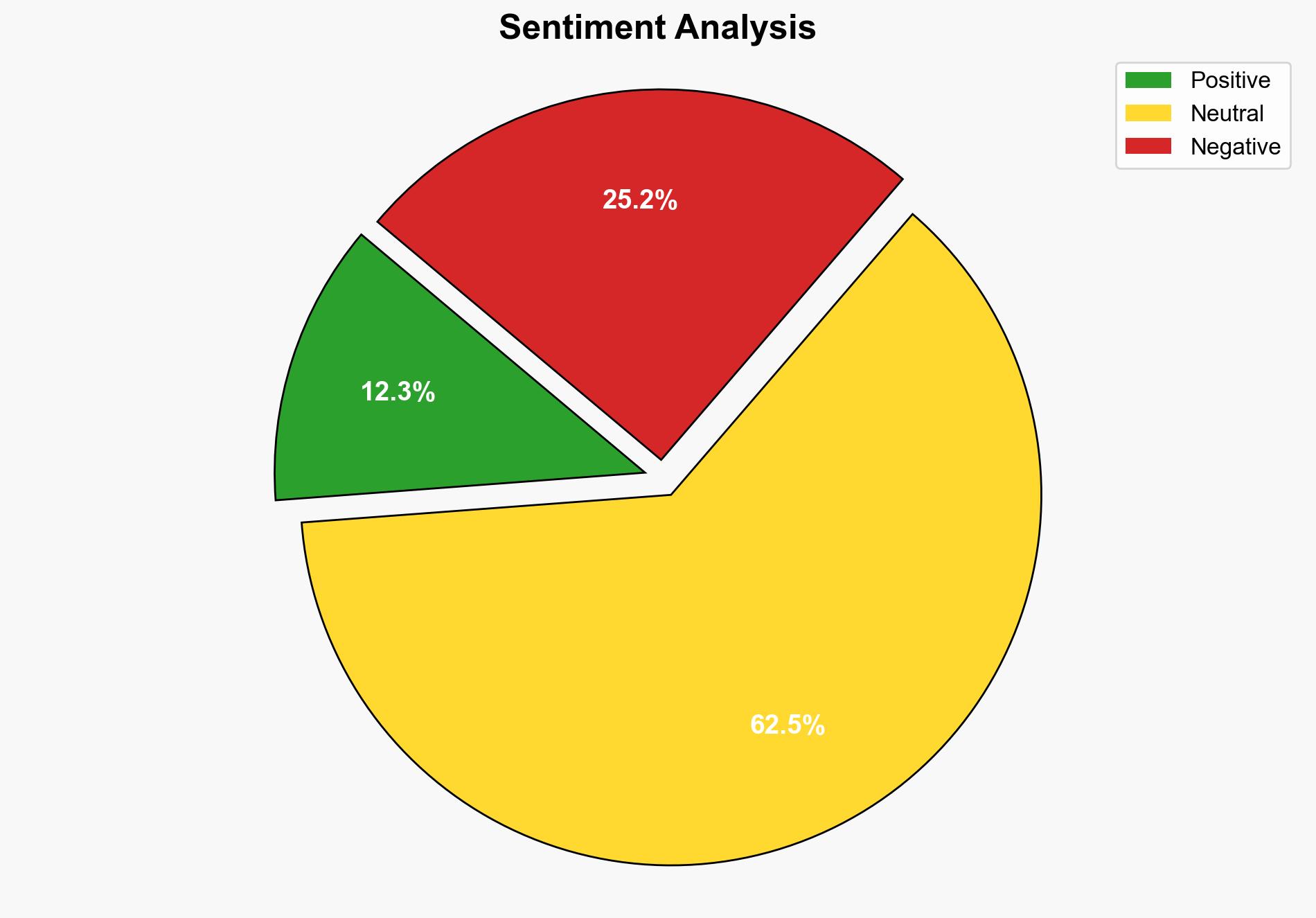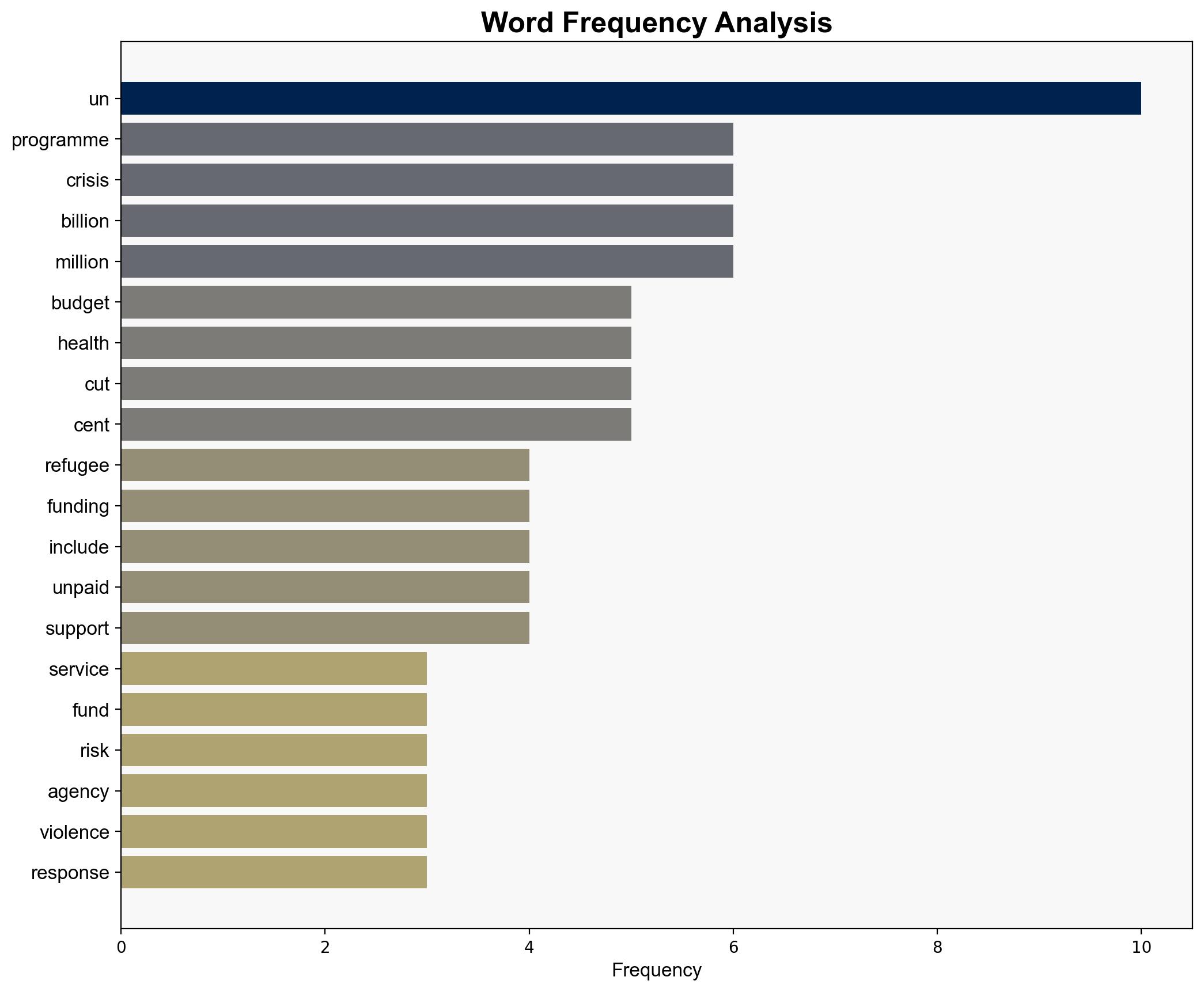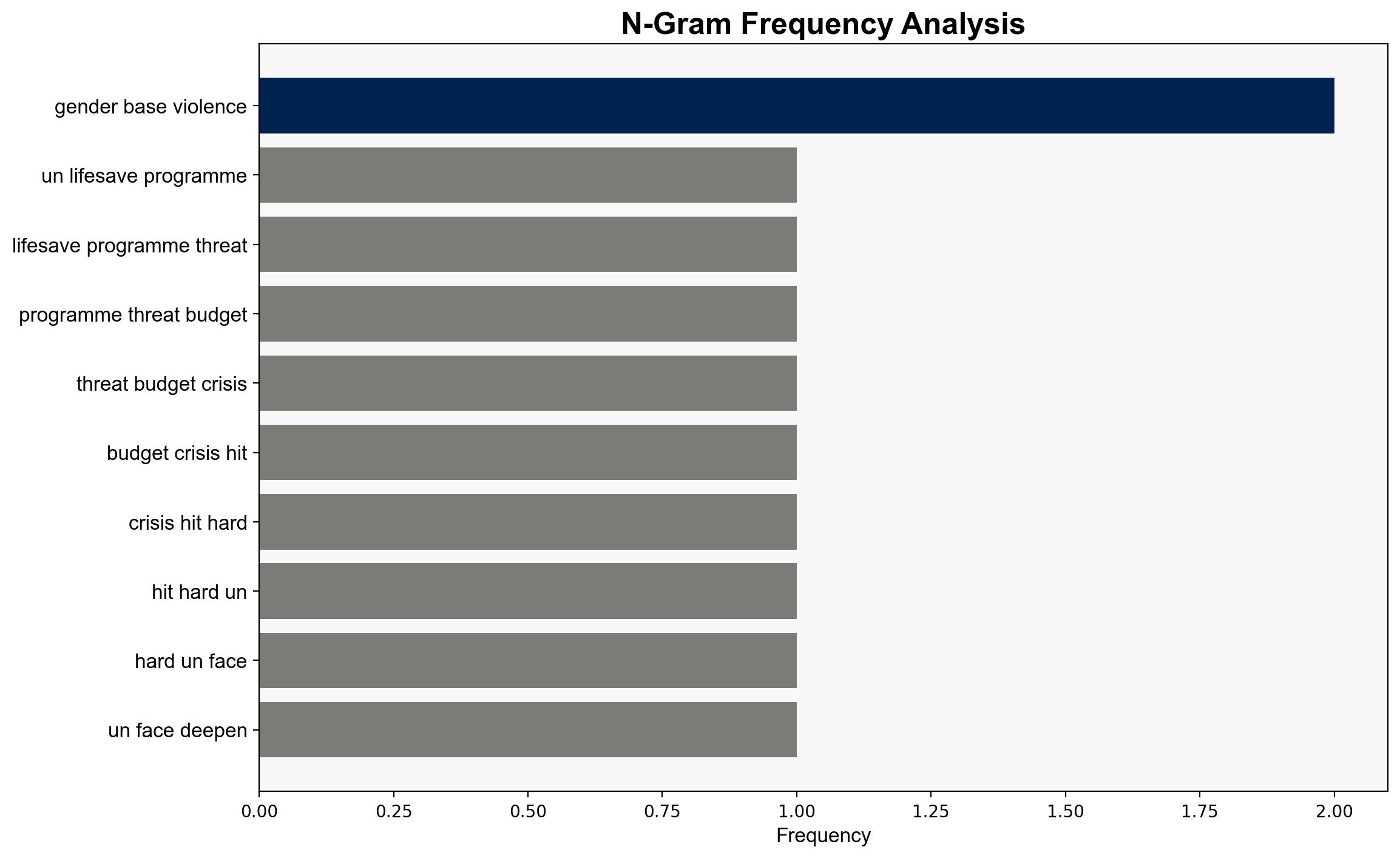UN’s lifesaving programmes under threat as budget crisis hits hard – Globalsecurity.org
Published on: 2025-05-31
Intelligence Report: UN’s Lifesaving Programmes Under Threat as Budget Crisis Hits Hard – Globalsecurity.org
1. BLUF (Bottom Line Up Front)
The United Nations is facing a severe budget crisis, jeopardizing critical humanitarian operations worldwide. Key programs in regions such as Mozambique, Afghanistan, and the Democratic Republic of Congo are at risk of collapse without urgent funding. The crisis stems from significant unpaid contributions, with the United States as the largest debtor. Immediate action is required to secure funding and sustain lifesaving services.
2. Detailed Analysis
The following structured analytic techniques have been applied to ensure methodological consistency:
Causal Layered Analysis (CLA)
At the surface level, the budget shortfall is causing immediate disruptions to UN operations. Systemically, this reflects broader geopolitical tensions and economic dependencies, particularly involving major contributors like the United States and China. The worldview underpinning these events is one of shifting global priorities and fiscal austerity. Mythically, the UN’s role as a global savior is being challenged by financial constraints.
Cross-Impact Simulation
The budget crisis could exacerbate regional instability, particularly in conflict-prone areas. Neighboring states may experience increased refugee flows, while economic dependencies could strain diplomatic relations. The withholding of funds by major contributors could lead to a reevaluation of international alliances and commitments.
Scenario Generation
In a best-case scenario, member states fulfill their financial obligations, stabilizing UN operations. In a worst-case scenario, continued funding deficits lead to widespread program shutdowns, escalating humanitarian crises. The most likely scenario involves partial recovery, with some programs receiving emergency funding while others remain underfunded.
3. Implications and Strategic Risks
The funding gap poses significant risks to global stability, particularly in regions reliant on UN support. The potential collapse of health and education services could lead to increased mortality rates and social unrest. Additionally, the crisis highlights vulnerabilities in the UN’s financial model, which relies heavily on a few major contributors.
4. Recommendations and Outlook
- Encourage member states to prioritize and expedite their financial contributions to the UN.
- Explore alternative funding mechanisms, such as public-private partnerships, to diversify revenue streams.
- Implement cost-saving measures within the UN to improve operational efficiency.
- Scenario-based projections suggest that proactive engagement with member states could mitigate the worst impacts of the crisis.
5. Key Individuals and Entities
António Guterres, Donald Trump, Aziza Hamidova, Tom Fletcher
6. Thematic Tags
national security threats, humanitarian crisis, global governance, economic dependencies




